Speaking Of Asia
German industry won’t decouple from China for good reason
German outreach to China may well be a path-setter, despite the criticism Chancellor Olaf Scholz has attracted.
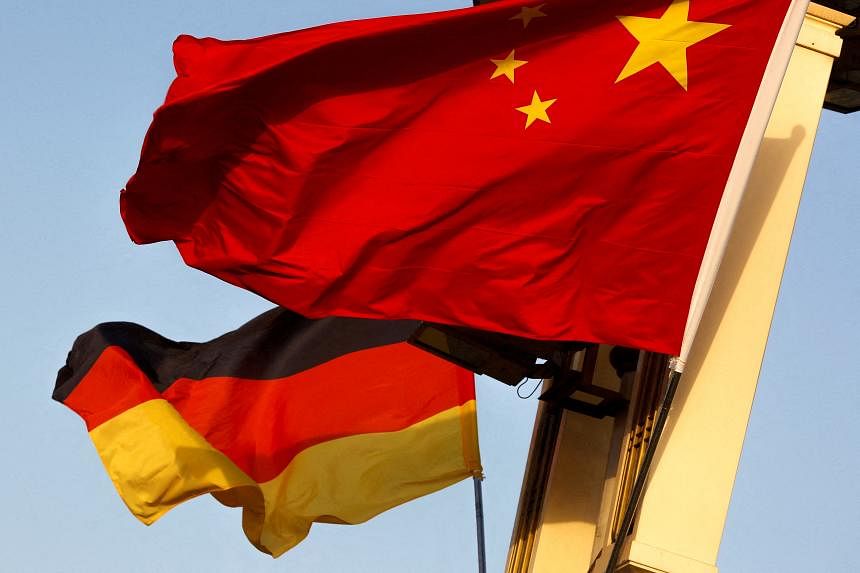
Was it a sell-out, naivety over China or muddled geopolitical thinking?
German Chancellor Olaf Scholz’s 11-hour visit to Beijing, accompanied by his nation’s top industry leaders, raised eyebrows for what appeared as a split from key European peers at a time when European Union solidarity is being tested by Russia’s invasion of Ukraine.
Such impressions may have been reinforced by an earlier German decision to allow Chinese shipping company Cosco to take a quarter-stake in the port of Hamburg, pushed for by Mr Scholz against the advice of his intelligence services.
Corporate executives invited to travel with him worried about the geopolitical implications against the backdrop of a brewing US-China rivalry.
Yet, ultimately, the top barons, who included the heads of Volkswagen, Deutsche Bank, BASF, BioNTech and Mercedes-Benz, decided to proceed. They calculated that the United States would have been fully cognisant of Germany’s China exposure and need to keep Beijing onside. Turning down the Chancellor’s invitation may also be taken as a slight by Beijing, if word leaked out.
Much has been made of how the trip bore few substantive outcomes after all the hand-wringing and intense preparations. But that would be missing the forest for the trees.
Germany has sent a strong signal that German industry cannot – and will not – decouple from China, even as it actively seeks to diversify its trade links even more. This line in the sand drawn by Berlin should stir discussion and provoke reflection in countries and cities with deep trading and economic links with China.
Why is Germany, Europe’s economic powerhouse, breaking ranks with its Atlantic partners to beat a lonely path to Beijing’s door?
A business case for business with China
The reality is the German economy cannot do without China.
Take Bosch, for example – the German auto parts titan and bellwether for the German economy. As a company with a diversified portfolio and global footprint, it has a partner-client list that includes Tesla, Toyota and Qingling Motors, as chairman and chief executive officer Stefan Hartung pointed out to me.
Today, the world’s biggest car market is China and Bosch is the world’s biggest maker of auto parts. While Bosch actively seeks to grow other parts of its business for balance, the transformation of the auto sector with the powertrain and digitisation is creating new opportunities for Bosch.
Bosch’s auto division will continue ticking upwards on the back of advances in personalised technology, enhanced safety, and automated driving functions, even if total car production volumes slow.
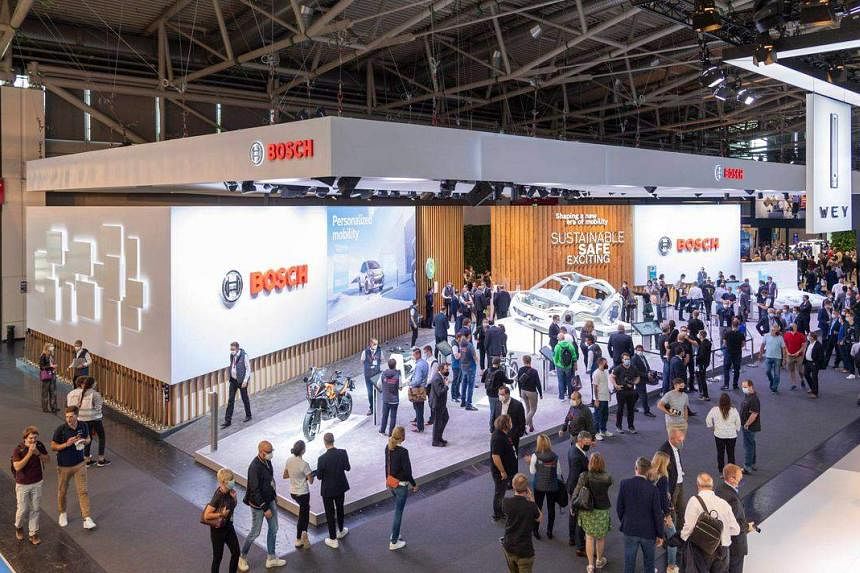
Bosch may not enjoy the same dominance with its other new products such as dishwashers. But here, too, China’s appetite is growing.
Yet, shipping dishwashers around the world incurs huge container space and hefty logistical costs. It is far more sensible to locate them closer to large consumer markets.
At the higher end, many emerging technologies, such as photovoltaic panels, are closely linked with China. Previous attempts to locate such plants in Germany went dismally.
Likewise, the joint venture with Qingling Motors will develop, assemble and market fuel cell systems – so-called Fuel Cell Power Modules – for the Chinese market. Such stuff is on the front lines of science.
Bosch is a bellwether for German industry since it makes everything from semiconductors to power drills. Its deep strength in the growing industry of essential building technology also sets the company on an upward trajectory.
It must focus overseas. Of the nearly €79 billion (S$113 billion) in sales Bosch clocked in 2021, 80 per cent were made outside Germany and almost half outside Europe. Sales in the Asia-Pacific region soared from €21.7 billion in 2020 to €24.5 billion in 2021. That compares with €12.9 billion in sales clocked in its Americas region.
More broadly, China was Germany’s top trading partner in 2021, exchanging goods worth about €245 billion compared with €80 billion of goods exchanged with next-door industrial powerhouse France.
China’s pull
It’s not just Bosch experiencing this gravitational pull towards China. Before the Scholz trip to China was announced, I asked Mr Peter Guenter, the CEO of Merck Healthcare, how geopolitics was affecting his business and the quality of research. Merck has some 400 ongoing clinical trials in the Asia-Pacific region.
Mr Guenter highlighted that the geopolitical elbowing was worsening inflation and Merck’s efforts were geared towards insulating these effects on healthcare. While Merck has pricing power in life sciences, prices tend to be regulated in healthcare, especially in countries with strong social security systems.
“I’m talking to politicians, especially in Europe, where we are confronted with significant inflation, and where they are budget-strapped. They must create sufficient oxygen for us so that we can continue to do what we do.”

China’s brilliant minds
Apart from lower costs, German industry is also seeing broader benefits to innovation when operating in China.
Bosch operates in China through a mix of joint ventures as with Qingling, and fully-owned operations. In both models, the experience has been a positive one, Dr Hartung tells me.
“The partners always bring something to the table... it could be better integration with the market, or technology. Just as in the US, we also have built up good management staff in China. We never underestimate the power of talent. Lots of brilliant minds work in China.”
In an earlier era, you might have thought talent only resided in a few spots, or came out of American or European universities. Today, he says, if he were looking for semiconductor specialists, he would look at a broader menu of places – like Singapore because of the quality of education and skill sets available here.
Although Dr Hartung does not say so explicitly, it is clear that the push to decouple technology must be weighed carefully against critical business needs and countries’ broader national interests of staying prosperous and keeping their people employed.
In January, as he took charge of Bosch, Dr Hartung warned that the structures of global trade are shifting and “geopolitical constellations” are getting more complex.
The world, he says, has to be ready “to see everything in parallel”. On the one hand, there will be intensified global collaboration – just as the world fought global hunger in the 1980s, climate change can only be solved globally.
At the same time, different groups of competitors are rising, reconfiguring and playing different fields with different rules.
“China is now very strong in the auto industry and the biggest market for cars. If you are not in this auto market, you cannot succeed in the global auto market. China will (then) say that if you have consumer data on China, you follow my rules. The US will say likewise, (for itself). These constellations are rising.”
“In the end, it is not too bad as long as the (overall) market is growing. It will not be a flat Earth any more but definitely one Earth, not three.”
With the war in Ukraine and Europe’s recalibration of energy dependence on Russia, coupled with Covid-19-related supply chain disruptions, German industry, whether in the auto business or healthcare, has had enough headaches to tackle this year. It does not seek more.
No alternatives
Is there an alternative to China? Not at the moment.
The only nation comparable to China in size is India, which Bosch’s Dr Hartung says is in a “fascinating position”. Indeed, there is anecdotal evidence of a great shift in American assets towards the South Asian giant.
The country has done well to evolve a unified market with its goods and services tax regime across the more than two dozen Indian states simplifying taxation rules. The wealth available to its rising middle class is approaching that of Western European levels.
But India lacks the infrastructure required to become an exporting powerhouse in goods and cannot take China’s place to supply to the region. Of course, it is a different matter in the services trade, where India is a major exporter.
Bosch has some 20,000 engineers in India, working closely with the 3,000-strong Vietnam engineering workforce as well as thousands more in Mexico, where its multiple locations for the various business groups include a software engineering centre set up in 2014.
In the company, Mexicans and Indians are seeing cross postings in each other’s countries. Talk of the tech world being a constellation unto itself.
The German outreach to China in some ways may well be a path-setter, despite the criticism Mr Scholz has attracted.
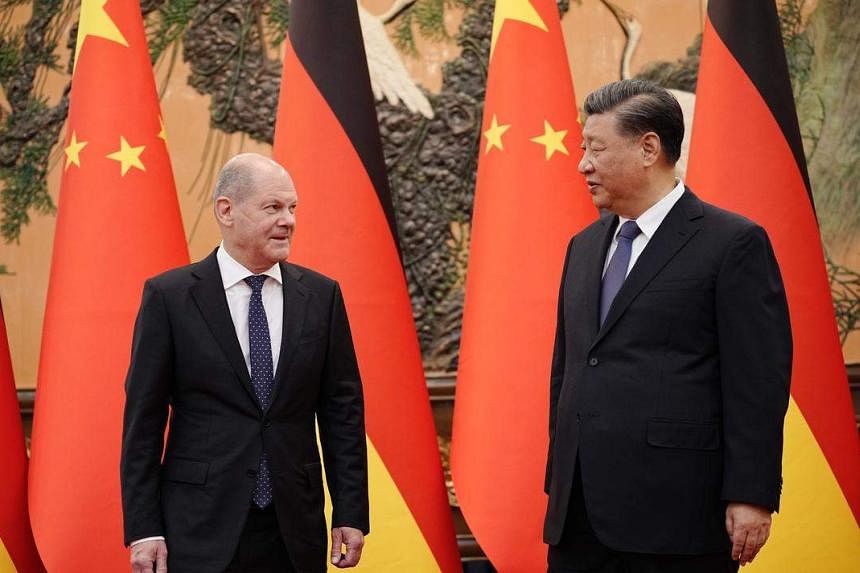
It remains to be seen what lessons countries like the Netherlands, whose high-end chipmaker ASML Holding is under pressure to refrain from selling high-end chips to China, and other key nations such as South Korea, draw from it.
Bosch itself has been careful to place its most advanced 300mm semiconductor factory, built at a cost of €3 billion, in Dresden, Germany. It has also announced a brand new chip-testing facility in Penang that will go on stream next year.
That’s sensible middle ground. Doing nothing could be costly in a world moving towards bifurcation but then, decoupling entirely may be costlier still.
Join ST's Telegram channel and get the latest breaking news delivered to you.



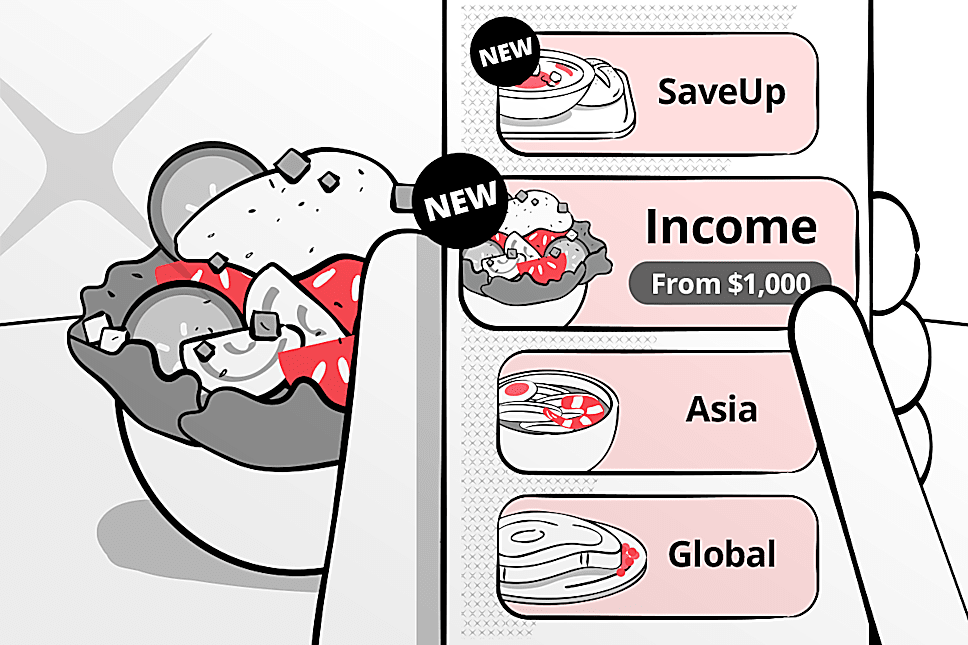
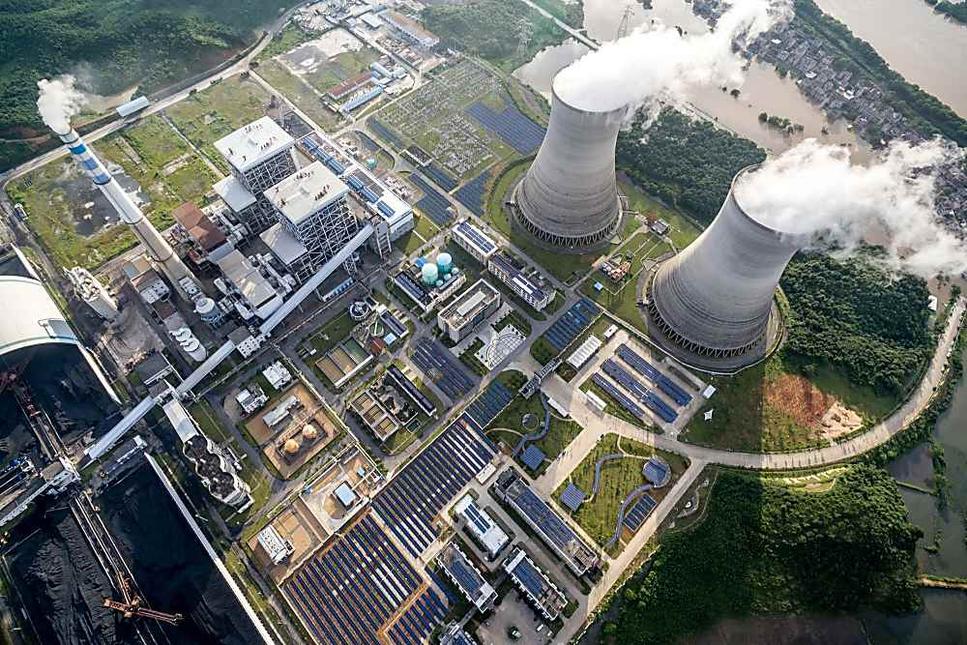
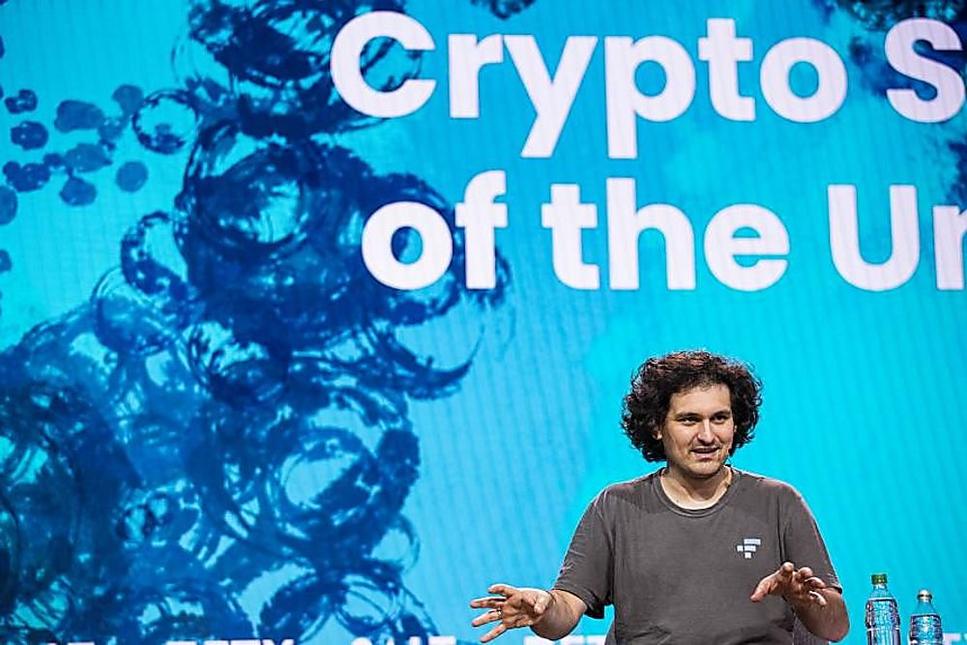

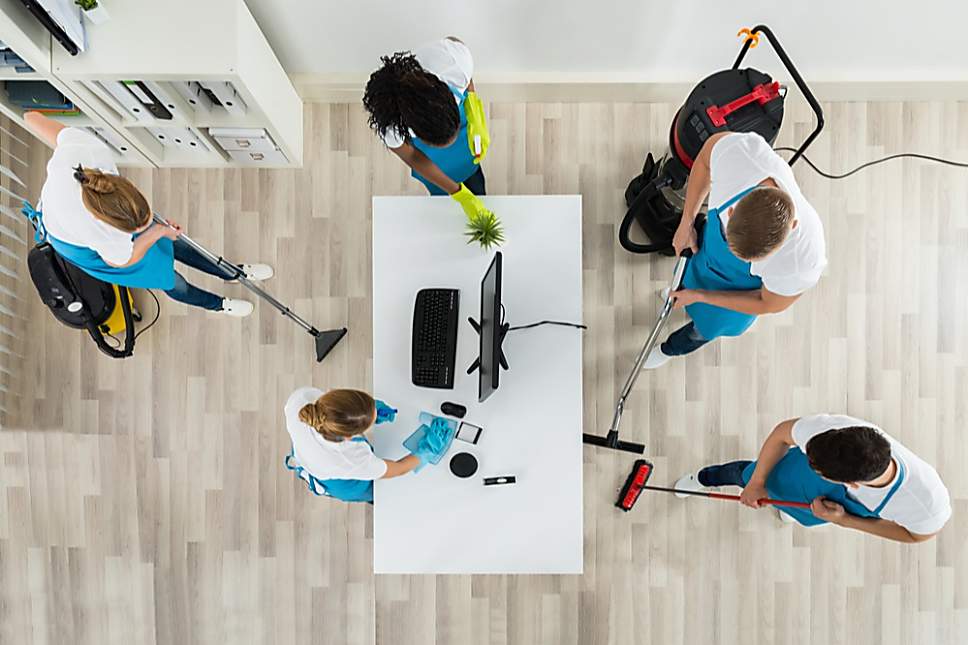

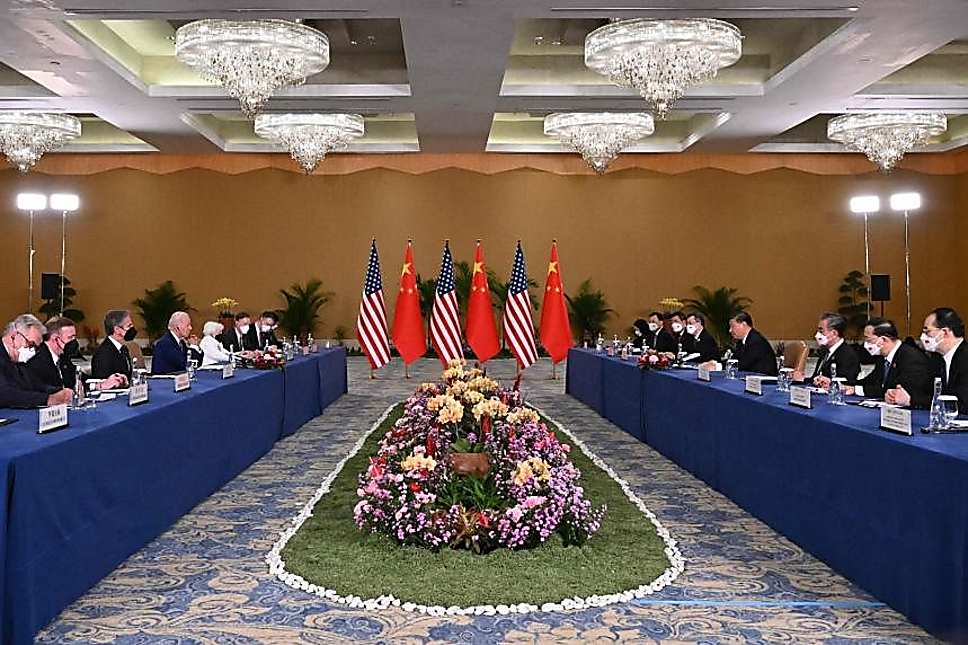






No comments:
Post a Comment